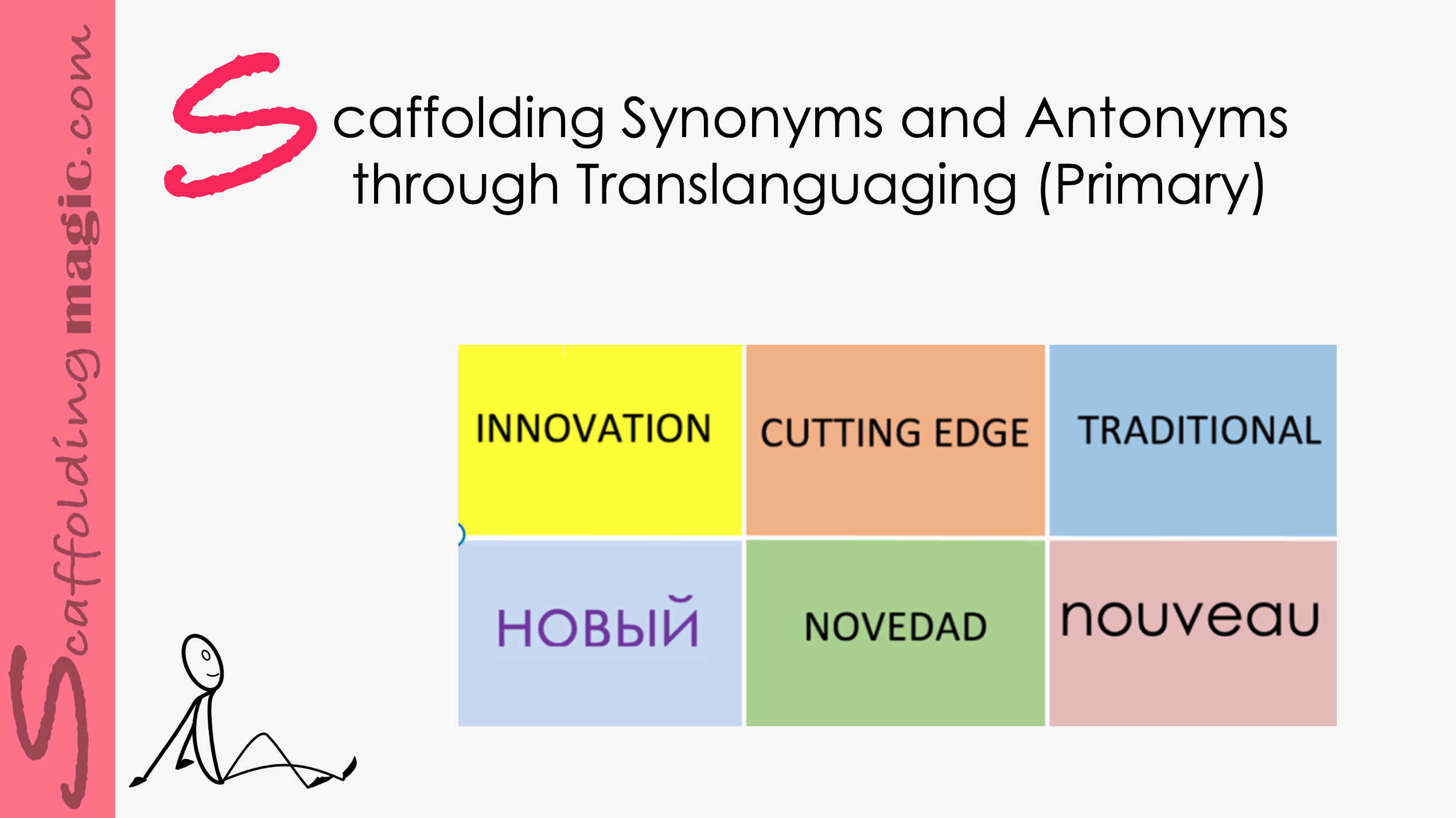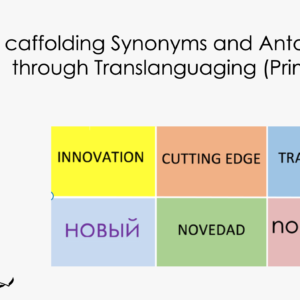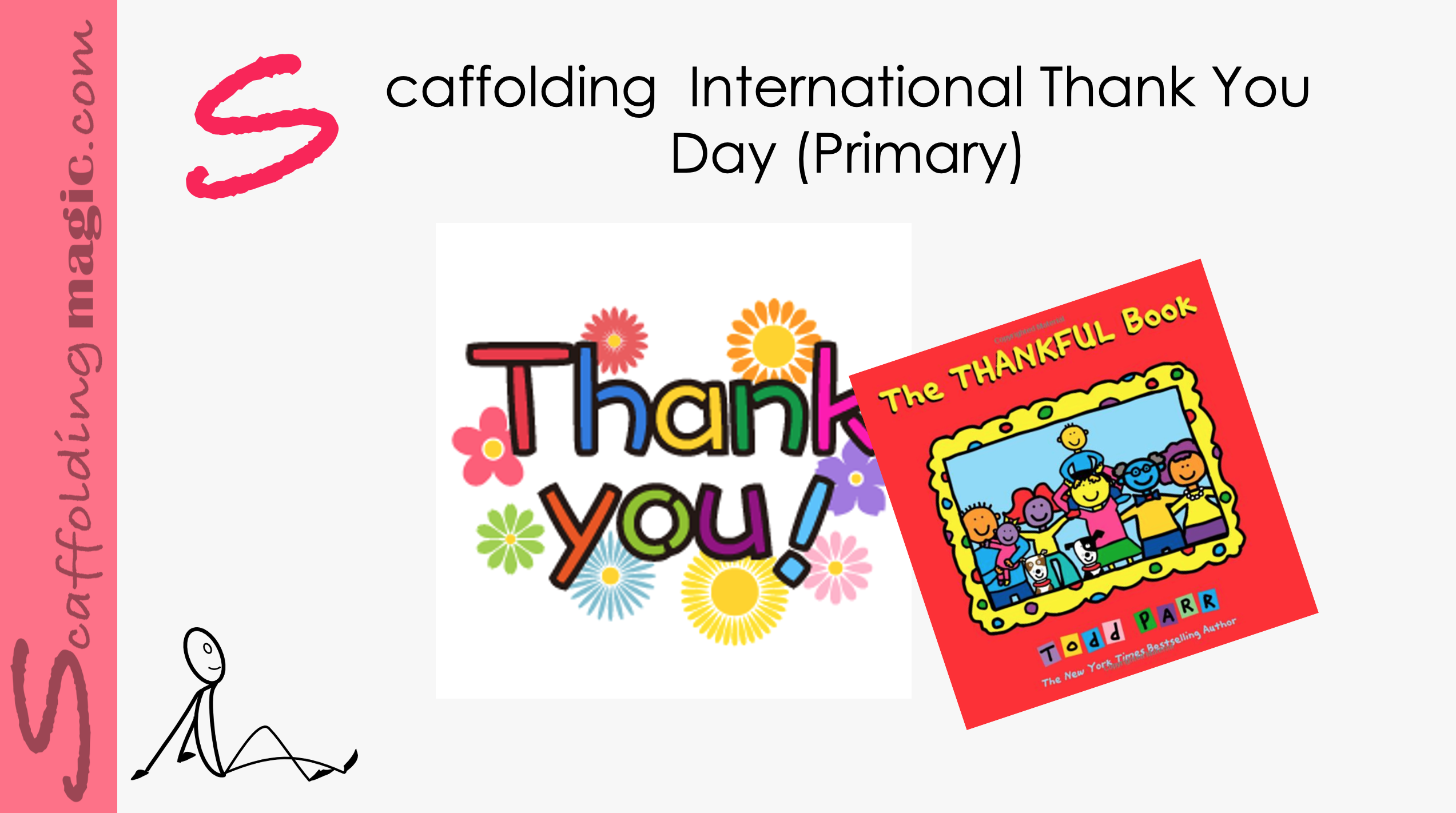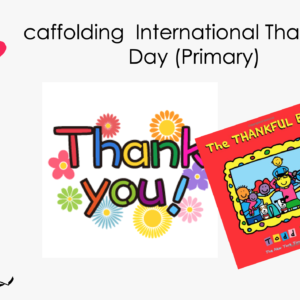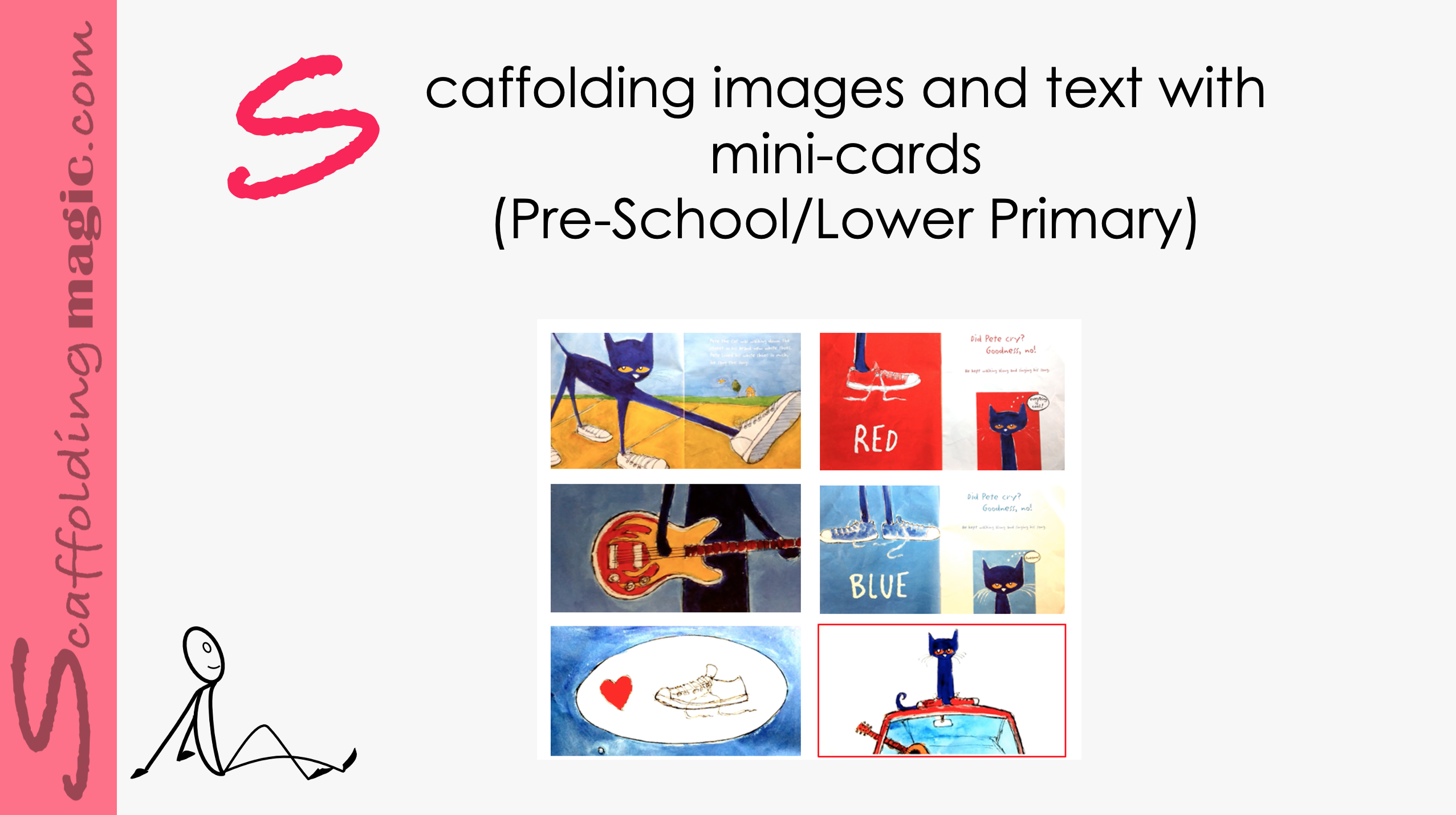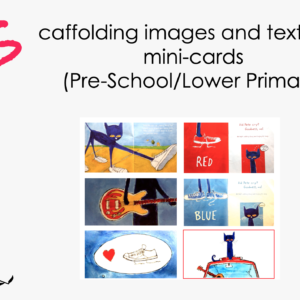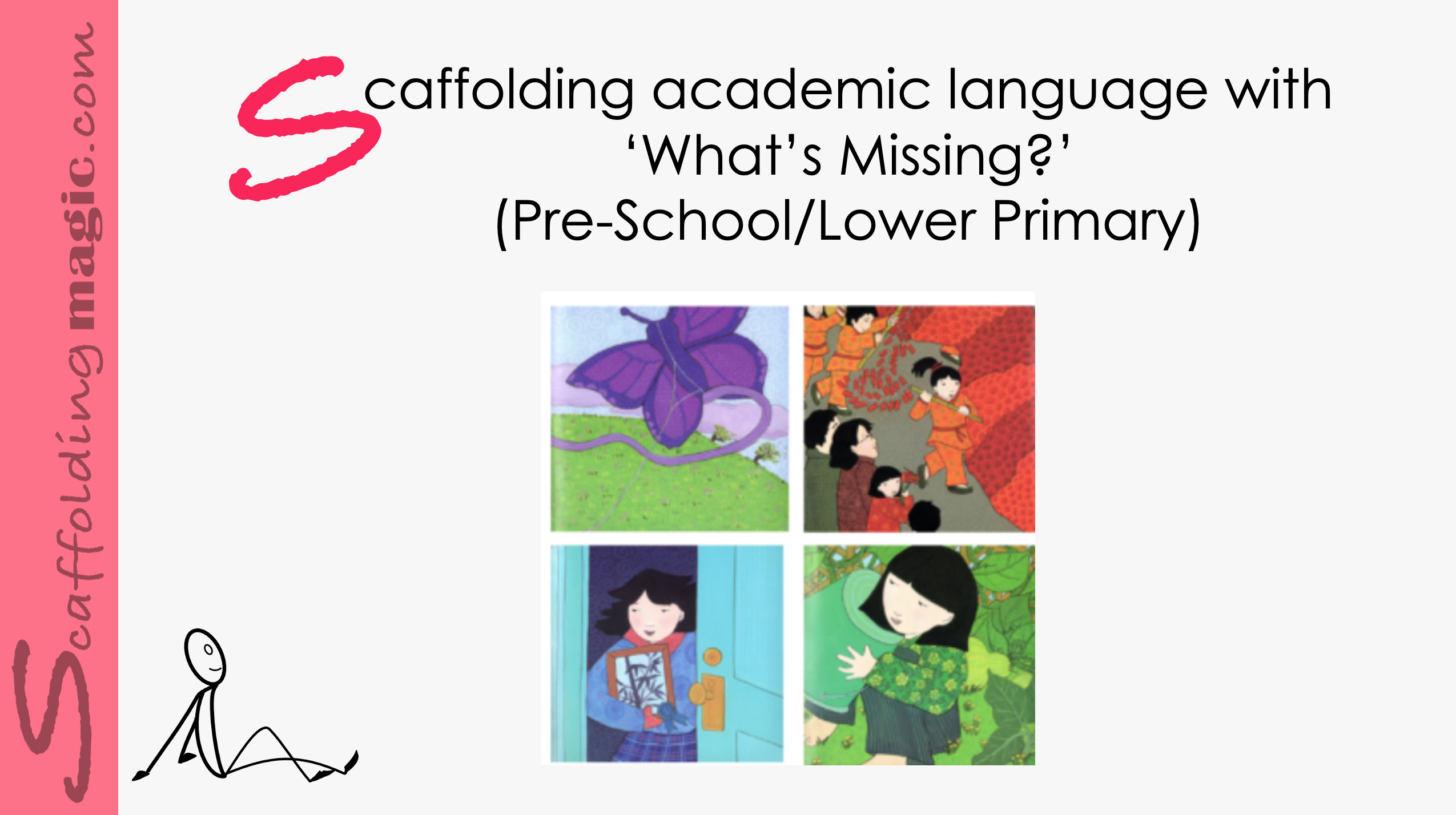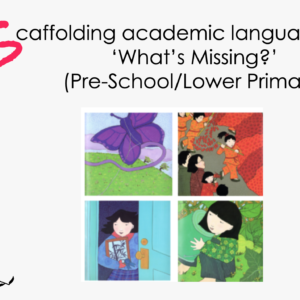This scaffold gives students the opportunity to interact with material through linguistics and visuals. As in the best-planned activities, we also include specific language outcomes. Too often we focus only on content, but being specific about the language structure, grammar and clarity of meaning ahead of time, students feel more supported and are therefore more able to confidently participate. The examples used in this activity come from a Natural Science class on energy. You’ll see how easy it is to adapt it to your lesson.
Scaffolding Dense information with Art (Primary)
$5.00
This scaffold gives students the opportunity to interact with material through linguistics and visuals. As in the best-planned activities, we also include specific language outcomes. Too often we focus only on content, but being specific about the language structure, grammar and clarity of meaning ahead of time, students feel more supported and are therefore more able to confidently participate. The examples used in this activity come from a Natural Science class on energy. You’ll see how easy it is to adapt it to your lesson.
Related products
-
Primary ScaffoldsQuick View
Scaffolding Synonyms and Antonyms through Translanguaging (Primary)
$5.00 Add to cartRated 0 out of 5 -
Primary ScaffoldsQuick View
Scaffolding International Thank You Day (Primary)
$5.00 Add to cartRated 0 out of 5 -
Primary ScaffoldsQuick View
Scaffolding Images and Text with Mini-Cards (Pre-School/lower primary)
$5.00 Add to cartRated 0 out of 5 -
Primary ScaffoldsQuick View
Scaffolding Academic Language with ‘What’s Missing?’ (Pre-School/Lower Primary)
$5.00 Add to cartRated 0 out of 5
Scaffolding Synonyms and Antonyms through Translanguaging (Primary)
An important factor in translanguaging is knowing the different registers – when to use different tones, words, phrases. It’s important to know which terms are appropriate for specific circumstances. Especially in those languages (such as English) in which there is no formal or informal pronouns, register and tone transmit crucial information. To give our students an even wider prospects in their scholastic and professional lives, being comfortable with – or at least recognising – register is of the highest importance.
An important factor in translanguaging is knowing the different registers – when to use different tones, words, phrases. It’s important to know which terms are appropriate for specific circumstances. Especially in those languages (such as English) in which there is no formal or informal pronouns, register and tone transmit crucial information. To give our students an even wider prospects in their scholastic and professional lives, being comfortable with – or at least recognising – register is of the highest importance.
Scaffolding International Thank You Day (Primary)
The International Thank You Day – celebrated by many on January 11th, others on June 11th – is a wonderful opportunity to help our students to focus on gratitude and add to positive forces in the world. Including gratitude in the educational environments is proven to improve relationships both in and outside of the classroom. Stressing affective factors in our lessons aligns us Vygotsky’s assertion (1978) that our students are more likely to step outside their comfort zone (ZPD) when they feel that they are supported and nurtured.
The International Thank You Day – celebrated by many on January 11th, others on June 11th – is a wonderful opportunity to help our students to focus on gratitude and add to positive forces in the world. Including gratitude in the educational environments is proven to improve relationships both in and outside of the classroom. Stressing affective factors in our lessons aligns us Vygotsky’s assertion (1978) that our students are more likely to step outside their comfort zone (ZPD) when they feel that they are supported and nurtured.
Scaffolding Images and Text with Mini-Cards (Pre-School/lower primary)
We all know by now (pretend that you do, even if you don’t!!!) that teaching critical thinking is a never-ending job. Critical thinking strategies are domain sensitive, which simply means that a strategy that works in art may not work in history, and a strategy that works in for a verbal deliberation may not work in a situation that requires physical movement, etc.
We look at all this as an opportunity to expand our practice. We can take this as an excuse to widen even further the variety of strategies we use in our classroom activities so that when our students go out into the world, they’ll be more prepared because of this little extra effort we put into our lessons.
We all know by now (pretend that you do, even if you don’t!!!) that teaching critical thinking is a never-ending job. Critical thinking strategies are domain sensitive, which simply means that a strategy that works in art may not work in history, and a strategy that works in for a verbal deliberation may not work in a situation that requires physical movement, etc.
We look at all this as an opportunity to expand our practice. We can take this as an excuse to widen even further the variety of strategies we use in our classroom activities so that when our students go out into the world, they’ll be more prepared because of this little extra effort we put into our lessons.
Scaffolding Academic Language with ‘What’s Missing?’ (Pre-School/Lower Primary)
Academic language is so important that experts assert that the warehouse of words a person has stored away is directly connected to their quality of thinking: higher quality of words equals higher quality of thinking.** In this age of the Fourth Industrial Revolution, the quality of thinking our students reach in our classes, will be the difference between being qualified for jobs that technology is (still) not capable of performing, and watching the world from the sidelines.
This applies even to our youngest learners. We can help them to assimilate academic language even before they begin to read. If we verbalise first-, second- and third-tier words,*** through dynamic activities, we are helping them to become familiar with academic language that will serve them for the rest of their academic and professional lives.
Academic language is so important that experts assert that the warehouse of words a person has stored away is directly connected to their quality of thinking: higher quality of words equals higher quality of thinking.** In this age of the Fourth Industrial Revolution, the quality of thinking our students reach in our classes, will be the difference between being qualified for jobs that technology is (still) not capable of performing, and watching the world from the sidelines.
This applies even to our youngest learners. We can help them to assimilate academic language even before they begin to read. If we verbalise first-, second- and third-tier words,*** through dynamic activities, we are helping them to become familiar with academic language that will serve them for the rest of their academic and professional lives.


